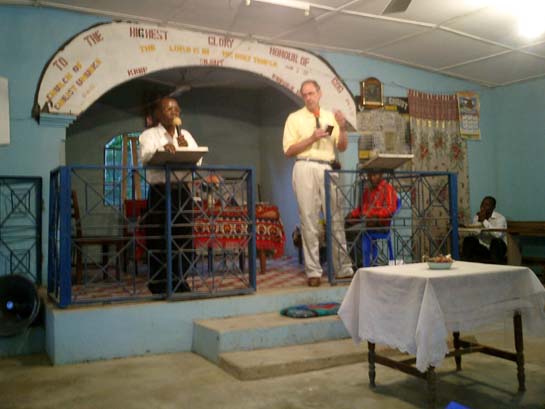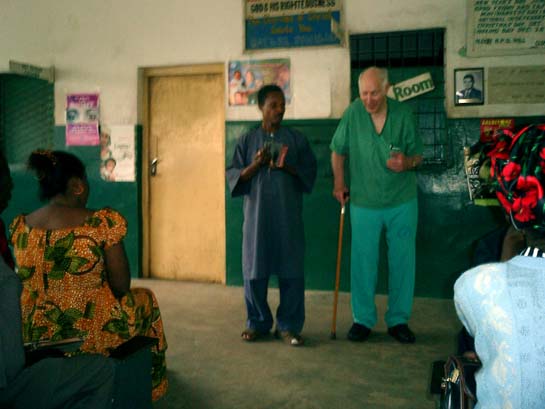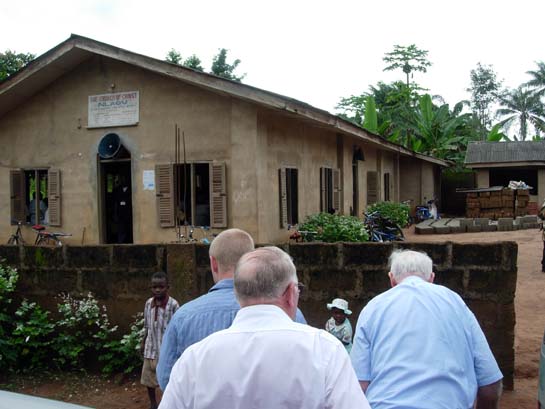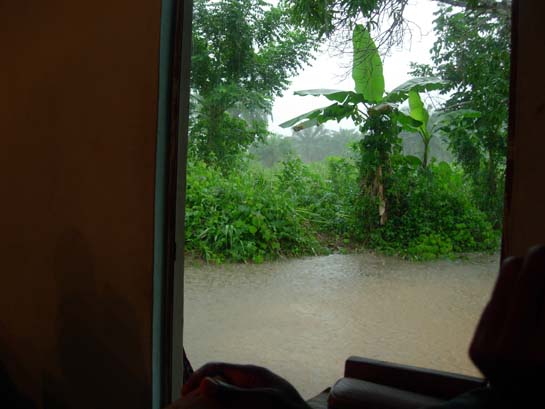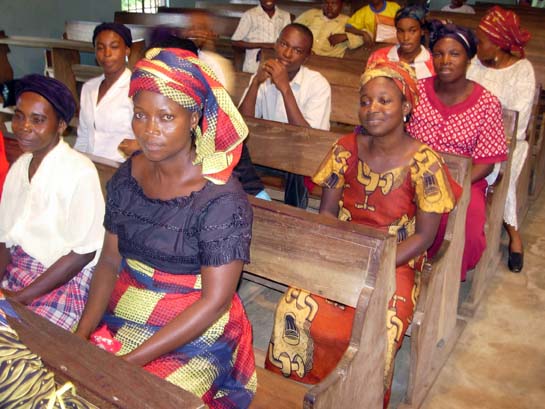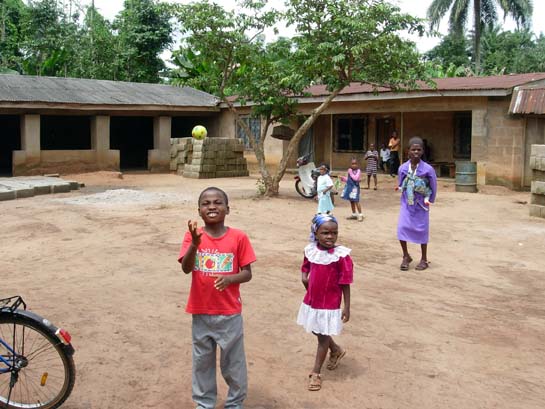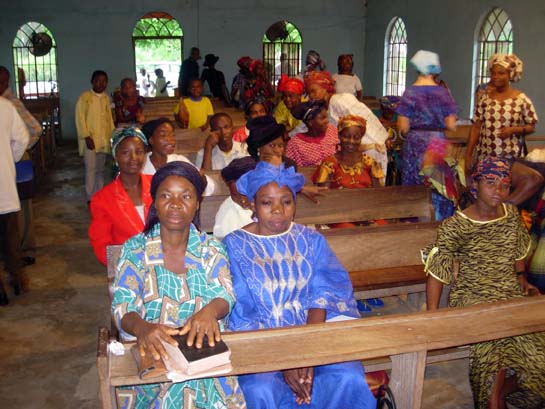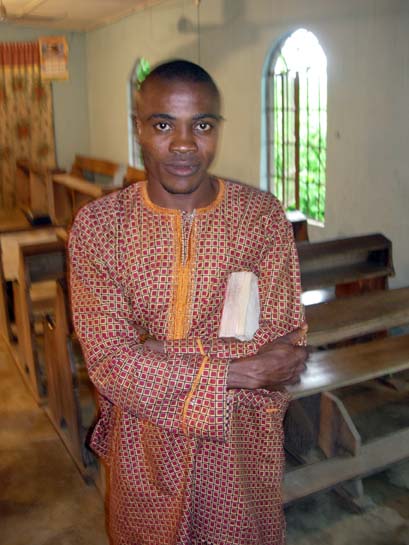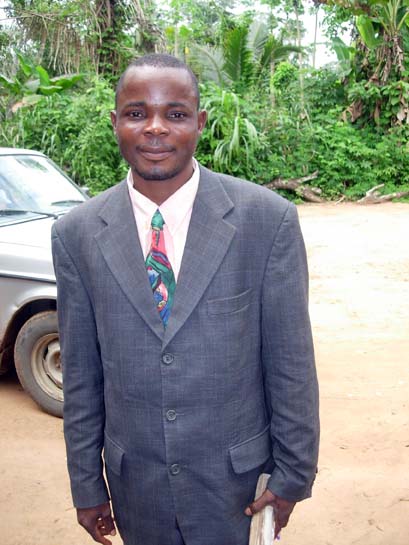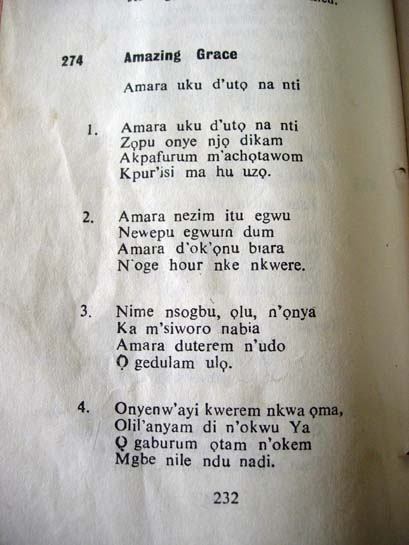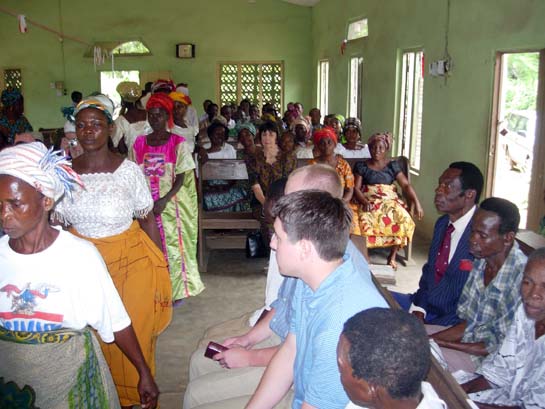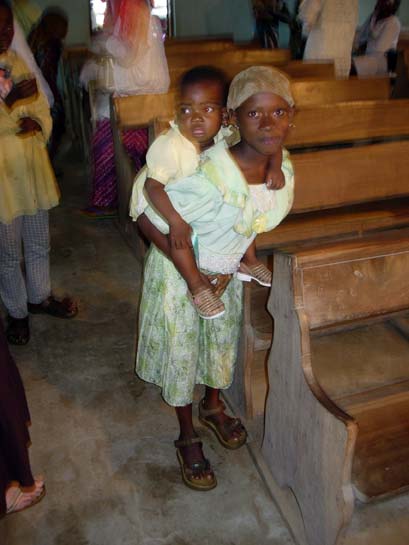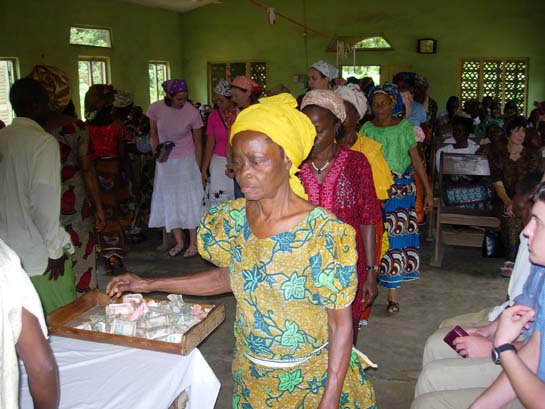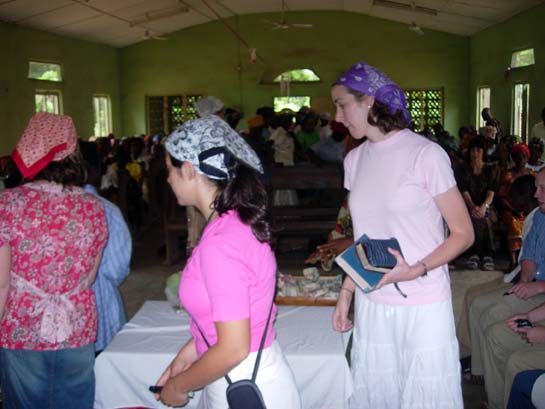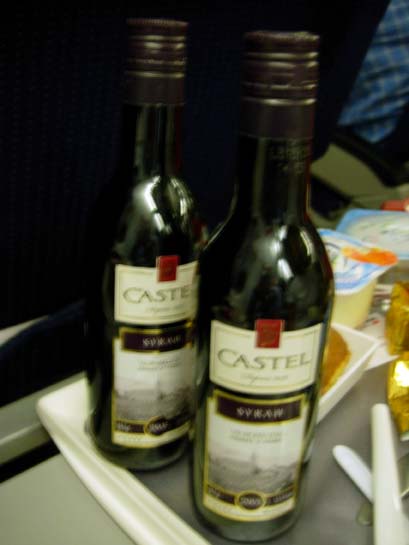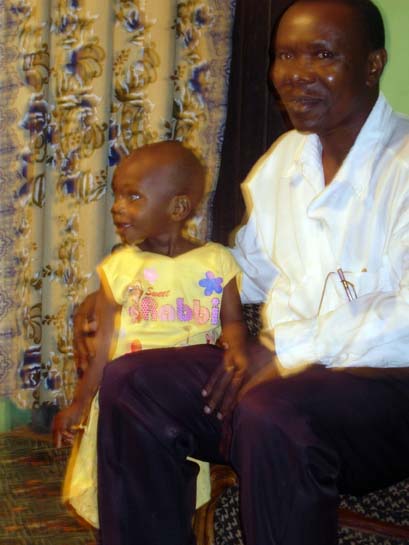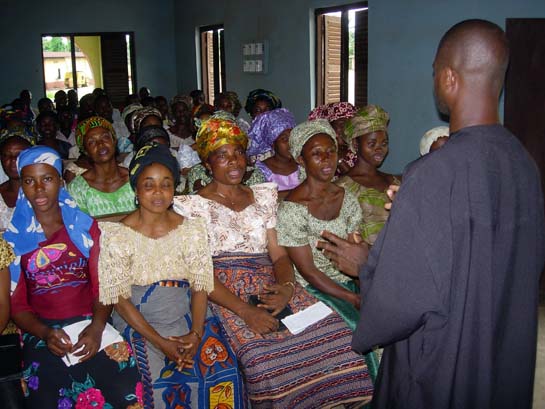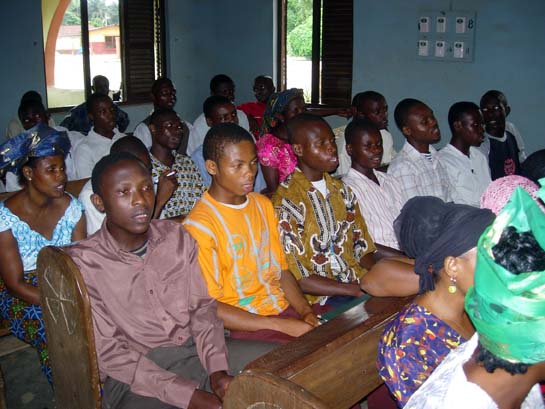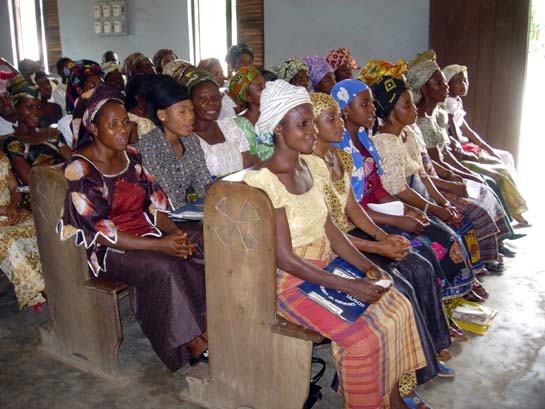|
There are lots of places and organizations where I can pass gas for altruistic reasons. I wanted to do it in a situation so that it would benefit the Kingdom. We have several medical missions, but the only two that I know of that do surgery (so I can function as an anesthesiologist) are the Nigerian Christian Hospital, where Laura and I were, and Health Talents International, which takes groups to Guatemala several times a year. They are only one week trips and require only a two or three hour flight from Houston. So getting there isn’t nearly the ordeal. I am looking into going there too, I think this April. As you can tell by the history chapter, I am kind of emotionally attached to Nigeria, so I wanted to go there first. The wonderful thing about the work in Nigeria is the way that physical “doing good” is such a help for the Kingdom. Remember the “History” chapter. Henry Farrar and Bob Whitaker have made sure that happened. The native people almost think of Dr. Farrar as an angel. He now goes over once or twice a year. It’s a big event when he does. Almost like a holiday. Sick folks come or are brought by their families for many miles to see him. He sits just out side the operating “theater” (that’s what the British call an operating room) and sees patients .
Dr. Farrar at his station, between patients He treats everything from high blood pressure to depression. When he finds a surgical problem, we take care of it. The Sundays that we were there we and he would go worship with two to five different congregations, so he could be with many of the churches that he had helped start. They listen to him and do pretty much what he asks them to do. He would always preach a short sermon. We would split up -- he would go to some places and others of us to others. If you walk in and you are white, they know you are connected with the hospital and the church. The whole time we were there, I never saw a light skinned person that wasn’t one of our party. They called us “doctor” or “missionary” or “stranger” or “visitor”. One of us was expected to preach. You’d walk in and they would ask, “Which one of you is going to preach?”
Preacher Al with his interpreter I would. It wasn’t too hard even if you weren’t prepared. You speak through an interpreter, so ten minutes of content takes thirty minutes and they like and need very simple messages. They would give us chickens and bananas as gifts. That’s huge for people who don’t have nearly enough to eat. I’ll get back to their worship in a bit. One day I was doing a case. On the other table Henry was doing a plastic surgery procedure on a young lady with a skin cancer on her face that had been ignored so long that it couldn’t be removed. She was going to die. She was probably in her thirties. The tumor had her eye lid splinted so that she couldn’t close her eye. He was trying to move a flap of skin around so that she could close her eye and her eyeball wouldn’t dry out. He was using local anesthetic to numb up the skin, so he didn’t need anesthesia (me). The most beautiful sound stared coming form that side of the operating room. I wasn’t sure what it was. Four people, the patient, the surgeon, the local circulating nurse and Lenorah (who was functioning as the scrub nurse) were singing “It Is Well with My Soul” in Ibo, the local dialect. I got the nurse to write it the song down for me. “Odinmei” is the word in Ibo that roughly means “it is well with my soul”. They sang it over and over to the western melody I was familiar with. I had never seen or heard any thing like that. I almost had to ask them to stop, I was trying to do a difficult case and they were choking me up. The spiritual and physical needs are cared for so well together. Each day at the hospital we started the day with a little devotional at 8;00 am.
Henry at morning devotional with his interpreter Our visiting team would be there and so would be some of he staff and patients. Henry would always have an introduction. The first day he introduced all of us. Each day one of the male members of our crew would speak for ten or fifteen minutes. We’d also sing and pray, then go to work about 8:30. Everything is done with an interpreter. Sunday worship was interesting and fun. The buildings were very simple, cinderblocks or concrete, with lots of windows with no screen or not many exterior walls at all. They were sort of like picnic shelters at a park.
One of the church buildings. Basically the "church buildings" were little more than a roof to protect congregants from the rain. One Sunday it rained so hard that you couldn't hear anything because of the big drops hitting on the tin roof.
Looking out from the building during the rainstorm
They had hard wooden bleachers. There would be an outhouse that was a small tin shack with a hole in the ground -- no seat. Sometimes there would be a preacher’s residence.
Preacher’s kids in front of his house
For worship the women dress in their beautiful colorful body wraps and head wraps. They worship with their heads covered, but that’s pretty much the way they are dressed all the time.
Some of the men wear traditional African garb.
Some look pretty western. The men and the women don’t sit together. I didn’t realize that the first Sunday and sat with Laura for the first few minutes, then moved. The music is awesome. It is always very loud and very heart felt and very beautiful. Sometime they would sing our western hymns. There were two kinds of song books, one in English, with notes, just like we are used to. The other books were our traditional hymns translated into Ibo. No notes.
Page from a song book The song leader would announce two numbers, one for the English book and one for the Ibo book. Everyone would sing the same melody, but in his language. It was beautiful, but a little odd and chaotic. The locals were always louder and more beautiful. Other times they would sing their music. I’m going to try to describe it, but it’s another time when words fail. I had never heard anything like it or ever close to like it. I get tears of joy when the memory of that music flows through my brain. Ibo is a tonal language, like the oriental languages. The same sound can mean different things base on whether the subtle pitch of a word rises of falls or stays the same. So it sounds almost musical even when not sung. It fits music so well, kind of like Italian and opera. There is also a beautiful rhythm, almost cog wheel cadence even when it is not sung. It is one of two hundred dialects in Nigeria. It is not similar to any European or romantic language that we know. There is a song leader, usually a young man. He will stand up front or between rows of pews. It seemed he always had a very high pitched tenor voice. He would sing a word, or a few words or a short phrase, very softly. Then the congregation would sing it back to him, like an echo, but not softly. It was so loud that you could feel it, literally. The young man would sing very simple melodies, but the echoes would be embellished. Over and over and over, each echo, louder and a little different. The same word of phrase over and over. Almost like a chant. No book, no verses. Not poetry set to music like most of our songs. Ibo was most beautiful, but then they would do he same thing, but for us, they would use English words for the “strangers” benefit. “Redeemed” over and over and over. Simple and soft from the young man, then echoed and embellished and changed a little each time by the group. It would go on for a long time. “I will be raised”. “I’m feeling good”.
Giving of their means. When they gave, there would be a box or tray down front and everyone, row by row, walked down and put their contribution in it. It took a while. They would sing like I described while they gave. So loud. So beautiful. So different. Many of them were infirm.
Many women had their babies strapped to their backs.
They are SO poor. So here you had the poorest people in the world hobbling down the isle with babies on their backs, singing the most beautiful music I’ve ever heard, dressed in beautiful colorful African wraps, and putting a ten or twenty nira note (seven to thirteen cents) in the tray to help the Kingdom. You should try to watch that and not tear up.
There's Laura. I can’t remember if I told you that Henry told us to request red wine with dinner on the flights, but not drink it. Everything is in short supply. So we gave them the wine to use for communion.
Communion wine After worship, we would visit with the preacher. They would give us chickens or bananas.
Preacher with his daughter.
I asked about the music. Was it traditional or what? They make it up. And almost all of it is very modern.
Every other Sunday, groups from about ten local congregations get together and the learn songs that people from each one have made up. Then they take them back and teach them to their group. Mr. Ruben our driver took us to that one afternoon.
Again, more beautiful than you can imagine. The cooks take off after breakfast Sunday, so we didn’t have lunch. They came back and made a simple dinner. |


